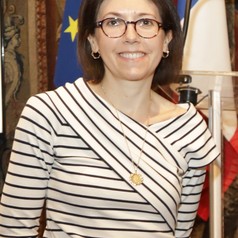The UK and France are in the process of redefining their relationship for a post-Brexit future. The two countries have been close partners within the EU, and 12m Britons visit France each year. Meanwhile, hundreds of thousands of British and French citizens call the other side of the Channel home. The British Foreign Office is keen to promote continuing cooperation, and used the #toujoursvoisins (“neighbours forever”) hashtag to celebrate these ties on Twitter following the 2016 Brexit referendum.
Yet while neighbours can be a source of friendship and support, they can also be a source of enmity and indifference. As a metaphor for the relationship between the UK and France, the term “voisins” is therefore perhaps unwittingly apt. By emphasising neighbourly geography, rather than policies or interests, it also highlights how pragmatism has historically underpinned the ability of the UK and France to work together so closely.
Relations between the UK and France are often portrayed as a history of at best mutual suspicion and at worst open hostility. The 1415 Battle of Agincourt, during which Henry V’s ragtag English army routed the French, is one such long-lived trope that has persisted through history.
It was not until the Entente Cordiale of 1904 that Britain and France recognised that they had more to gain from working together than being rivals. Yet even their alliance in the First and Second World Wars didn’t end their mistrust.
In the peace negotiations after World War I, British politicians suspected that the French government wanted harsh terms against Germany so that France could become Europe’s dominant power. Despite standing shoulder to shoulder against the Nazis in September 1939, the fall of France in June 1940 revived old rancour. Churchill took the decision to bomb the French navy at Mers-el-Kébir on July 3, 1940, killing 1,297 servicemen, because he didn’t trust French promises to keep the fleet from German hands. The fallout caused the two countries to break off diplomatic relations until 1944.
Post-war suspicion
After 1945, the UK and France had to adapt to their diminished statuses on the world stage. But while Paris believed that European integration would enhance France’s influence, London saw it as a threat to Britain’s sovereignty and global interests. Charles de Gaulle’s vetoes against UK entry to the European Economic Community (EEC) in 1963 and 1967 marked a new low point in cross-Channel relations, highlighting a gulf in British and French visions of Europe. More recently, French president Emmanuel Macron’s tough stance in the Brexit negotiations has led many commentators to draw comparisons with de Gaulle’s treatment of the UK.
Yet while the history of Franco-British relations has often been marked by tensions, it has also been shaped by cooperation. In times of crisis, the UK and France have formed a partnership of extraordinary closeness. From the Foreign Office proposal to form a union of the two nations in June 1940, to joint military action in Suez in 1956, wars and international crises have drawn the UK and France together.
More recently, the two countries have shown that pragmatic cooperation can be just as strong as cooperation born of crisis. The Channel Tunnel, which connects the two countries beneath the sea, might have strengthened the social and cultural connections between the UK and France, but it was the economic opportunities that prompted UK prime minister Margaret Thatcher and French president François Mitterrand to approve its construction in 1986.
The 2010 Lancaster House Treaties have also brought unprecedented levels of defence and security cooperation between the UK and France. This includes developing a Combined Joint Expeditionary Force, joint military training programmes and joint maritime taskforce deployments. But perhaps, above all, it is the opportunity to pool resources in what the Daily Mail dubbed the “Entente Frugale” that drives the cooperation.
A pragmatic future?
While it might appear that the French and British governments are intractably divided over Brexit, the history of Franco-British relations highlights the importance of pragmatism in overcoming mutual suspicions. The entangled histories of the UK and France are a potent reminder of their close ties, but the ongoing political, defence and economic connections provide a powerful incentive for continued cooperation. This will be all the more important because just as the UK is seeking to reposition itself post-Brexit, so France is seeking to do the same.
After the UK leaves the EU, France will be the only major military power in the EU with an independent nuclear deterrent and a permanent seat on the UN Security Council. Macron has already shown himself to be an adept diplomat and a pro-business leader. He has made no secret of his ambitions for France to exploit the opportunities arising from Brexit.
Relations between the UK and France will need recalibrating post-Brexit, but will not necessarily need any wholescale reimagining. As the history of the two countries’ relations shows, it is when pragmatism prevails that they have worked together most effectively.



 Elon Musk’s Empire: SpaceX, Tesla, and xAI Merger Talks Spark Investor Debate
Elon Musk’s Empire: SpaceX, Tesla, and xAI Merger Talks Spark Investor Debate  JPMorgan Lifts Gold Price Forecast to $6,300 by End-2026 on Strong Central Bank and Investor Demand
JPMorgan Lifts Gold Price Forecast to $6,300 by End-2026 on Strong Central Bank and Investor Demand  Nasdaq Proposes Fast-Track Rule to Accelerate Index Inclusion for Major New Listings
Nasdaq Proposes Fast-Track Rule to Accelerate Index Inclusion for Major New Listings  BTC Flat at $89,300 Despite $1.02B ETF Exodus — Buy the Dip Toward $107K?
BTC Flat at $89,300 Despite $1.02B ETF Exodus — Buy the Dip Toward $107K? 































